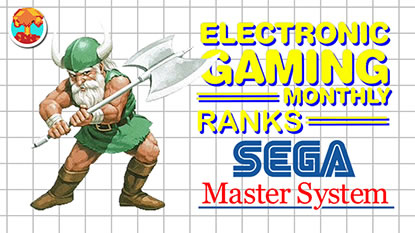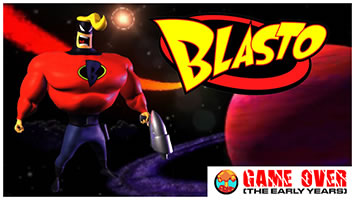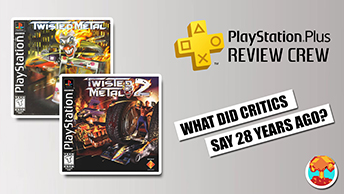- CLASSIC MAGAZINES
- REVIEW CREW
A show recapping what critics thought back
when classic games first came out! - NEXT GENERATION'S BEST & WORST
From the worst 1-star reviews to the best
5-stars can offer, this is Next Generation! - NINTENDO POWER (ARCHIVE)
Experience a variety of shows looking at the
often baffling history of Nintendo Power! - MAGAZINE RETROSPECTIVE
We're looking at the absolutely true history of
some of the most iconic game magazines ever! - SUPER PLAY'S TOP 600
The longest and most ambitious Super NES
countdown on the internet! - THEY SAID WHAT?
Debunking predictions and gossip found
in classic video game magazines! - NEXT GENERATION UNCOVERED
Cyril is back in this spin-off series, featuring the
cover critic review the art of Next Generation! - HARDCORE GAMER MAGAZING (PDF ISSUES)
Download all 36 issues of Hardcore Gamer
Magazine and relive the fun in PDF form!
- REVIEW CREW
- ELECTRONIC GAMING MONTHLY
- ELECTRONIC GAMING MONTHLY RANKS
From Mario to Sonic to Street Fighter, EGM
ranks classic game franchises and consoles! - ELECTRONIC GAMING MONTHLY BEST & WORST
Counting down EGM’s best and worst reviews
going year by year, from 1989 – 2009! - ELECTRONIC GAMING BEST & WORST AWARDS
11-part video series chronicling the ups and
downs of EGM’s Best & Worst Awards!
- ELECTRONIC GAMING MONTHLY RANKS
- GAME HISTORY
- GAME OVER: STORY BREAKDOWNS
Long-running series breaking down game
stories and analyzing their endings! - A BRIEF HISTORY OF GAMING w/ [NAME HERE]
Real history presented in a fun and pithy
format from a variety of game historians! - THE BLACK SHEEP
A series looking back at the black sheep
entries in popular game franchises! - INSTANT EXPERT
Everything you could possibly want to know
about a wide variety of gaming topics! - FREEZE FRAME
When something familiar happens in the games
industry, we're there to take a picture! - I'VE GOT YOUR NUMBER
Learn real video game history through a series
of number-themed episodes, starting at zero! - GREAT MOMENTS IN BAD ACTING
A joyous celebration of some of gaming's
absolute worst voice acting!
- GAME OVER: STORY BREAKDOWNS
- POPULAR SHOWS
- DG NEWS w/ LORNE RISELEY
Newsman Lorne Riseley hosts a regular
series looking at the hottest gaming news! - REVIEW REWIND
Cyril replays a game he reviewed 10+ years
ago to see if he got it right or wrong! - ON-RUNNING FEUDS
Defunct Games' longest-running show, with
editorials, observations and other fun oddities! - DEFUNCT GAMES QUIZ (ARCHIVE)
From online quizzes to game shows, we're
putting your video game knowledge to the test!- QUIZ: ONLINE PASS
Take a weekly quiz to see how well you know
the news and current gaming events! - QUIZ: KNOW THE GAME
One-on-one quiz show where contestants
find out if they actually know classic games! - QUIZ: THE LEADERBOARD
Can you guess the game based on the classic
review? Find out with The Leaderboard!
- QUIZ: ONLINE PASS
- DEFUNCT GAMES VS.
Cyril and the Defunct Games staff isn't afraid
to choose their favorite games and more! - CYRIL READS WORLDS OF POWER
Defunct Games recreates classic game
novelizations through the audio book format!
- DG NEWS w/ LORNE RISELEY
- COMEDY
- GAME EXPECTANCY
How long will your favorite hero live? We crunch
the numbers in this series about dying! - VIDEO GAME ADVICE
Famous game characters answer real personal
advice questions with a humorous slant! - FAKE GAMES: GUERILLA SCRAPBOOK
A long-running series about fake games and
the people who love them (covers included)! - WORST GAME EVER
A contest that attempts to create the worst
video game ever made, complete with covers! - LEVEL 1 STORIES
Literature based on the first stages of some
of your favorite classic video games! - THE COVER CRITIC
One of Defunct Games' earliest shows, Cover
Critic digs up some of the worst box art ever! - COMMERCIAL BREAK
Take a trip through some of the best and
worst video game advertisements of all time! - COMIC BOOK MODS
You've never seen comics like this before.
A curious mix of rewritten video game comics!
- GAME EXPECTANCY
- SERIES ARCHIVE
- NINTENDO SWITCH ONLINE ARCHIVE
A regularly-updated list of every Nintendo
Switch Online release, plus links to review! - PLAYSTATION PLUS CLASSIC ARCHIVE
A comprehensive list of every PlayStation
Plus classic release, including links! - RETRO-BIT PUBLISHING ARCHIVE
A regularly-updated list of every Retro-Bit
game released! - REVIEW MARATHONS w/ ADAM WALLACE
Join critic Adam Wallace as he takes us on a
classic review marathon with different themes!- DEFUNCT GAMES GOLF CLUB
Adam Wallace takes to the links to slice his way
through 72 classic golf game reviews! - 007 IN PIXELS
Adam Wallace takes on the world's greatest spy
as he reviews 15 weeks of James Bond games! - A SALUTE TO VAMPIRES
Adam Wallace is sinking his teeth into a series
covering Castlevania, BloodRayne and more! - CAPCOM'S CURSE
Adam Wallace is celebrating 13 days of Halloween
with a line-up of Capcom's scariest games! - THE FALL OF SUPERMAN
Adam Wallace is a man of steel for playing
some of the absolute worst Superman games! - THE 31 GAMES OF HALLOWEEN
Adam Wallace spends every day of October afraid
as he reviews some of the scariest games ever! - 12 WEEKS OF STAR TREK
Adam Wallace boldly goes where no critic has
gone before in this Star Trek marathon!
- DEFUNCT GAMES GOLF CLUB
- DAYS OF CHRISTMAS (ARCHIVE)
Annual holiday series with themed-episodes
that date all the way back to 2001!- 2015: 30 Ridiculous Retro Rumors
- 2014: 29 Magazines of Christmas
- 2013: 29 Questionable Power-Ups of Christmas
- 2012: 34 Theme Songs of Christmas
- 2011: 32 Game Endings of Christmas
- 2010: 31 Bonus Levels of Christmas
- 2009: 30 Genres of Christmas
- 2008: 29 Controls of Christmas
- 2007: 34 Cliches of Christmas
- 2006: 33 Consoles of Christmas
- 2005: 32 Articles of Christmas
- 2004: 31 Websites of Christmas
- 2003: 29 Issues of Christmas
- 2002: 28 Years of Christmas
- 2001: 33 Days of Christmas
- NINTENDO SWITCH ONLINE ARCHIVE
- REVIEW ARCHIVE
- FULL ARCHIVE
Electronic Gaming Monthly's Best Reviewed Games of 2005
The year is 2005 and Gwen Stefani will stop at nothing to teach the world how to spell "bananas." This was also the year when Batman began kicking ass, YouTube started broadcasting and Tom Cruise professed his love for Katie Holmes. But we're not here to jump on Oprah's couch, because today we're counting down Electronic Gaming Monthly's Best Reviewed Games of 2005. B-A-N-A-N-A-S, indeed!
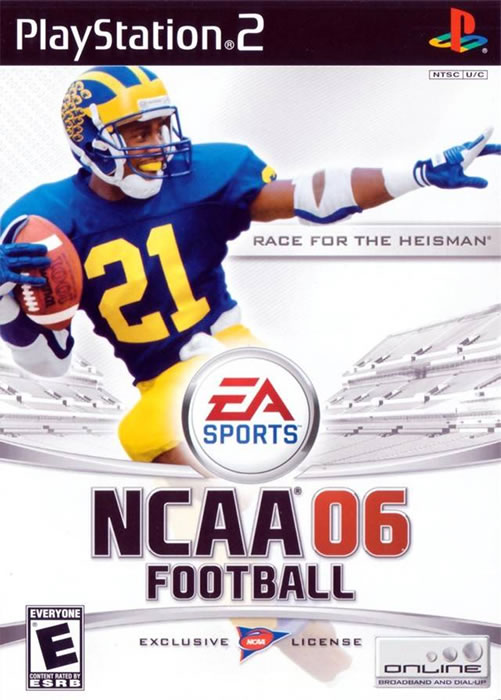
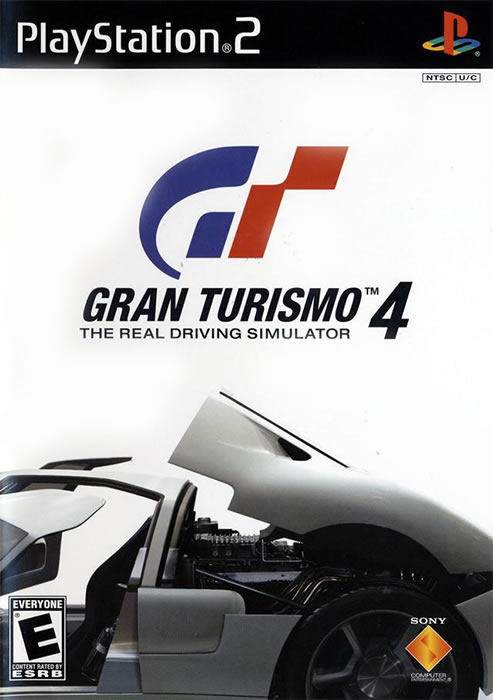
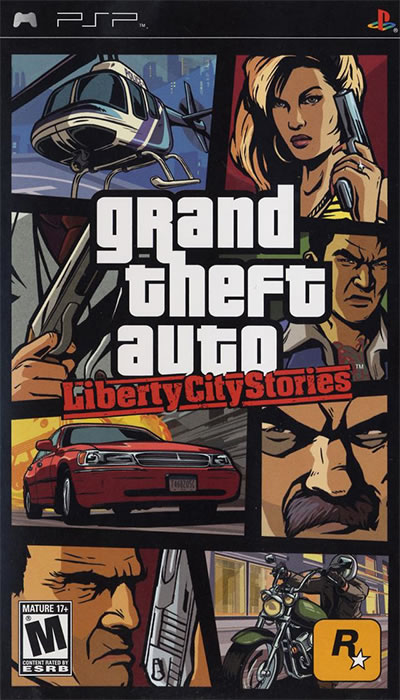
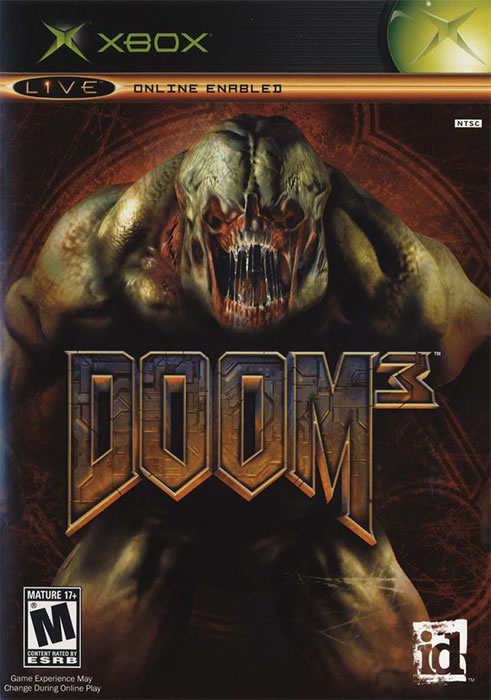
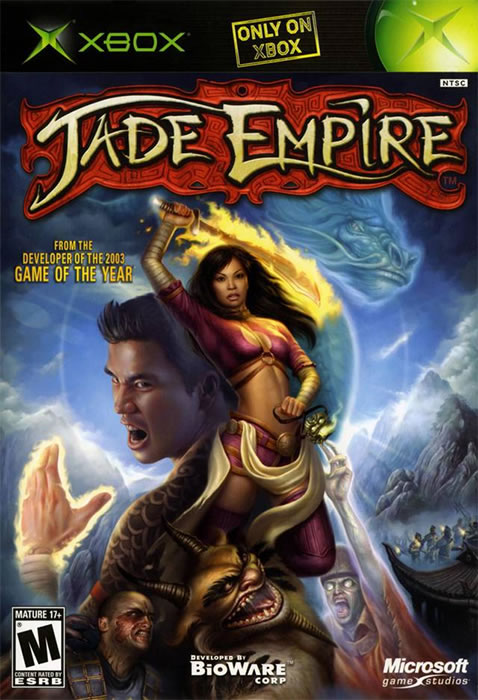
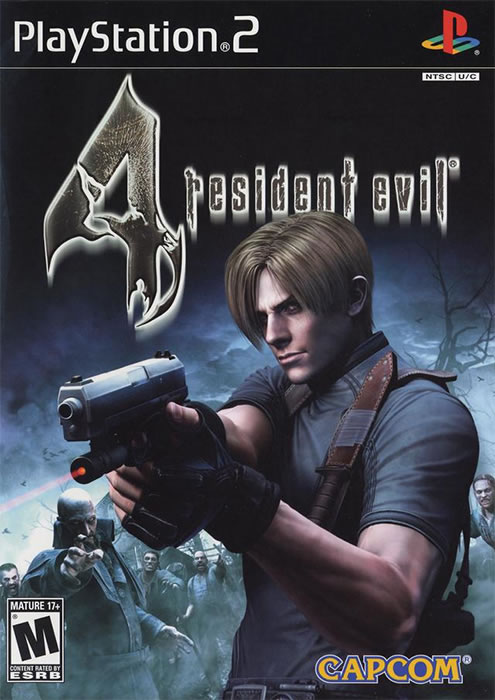
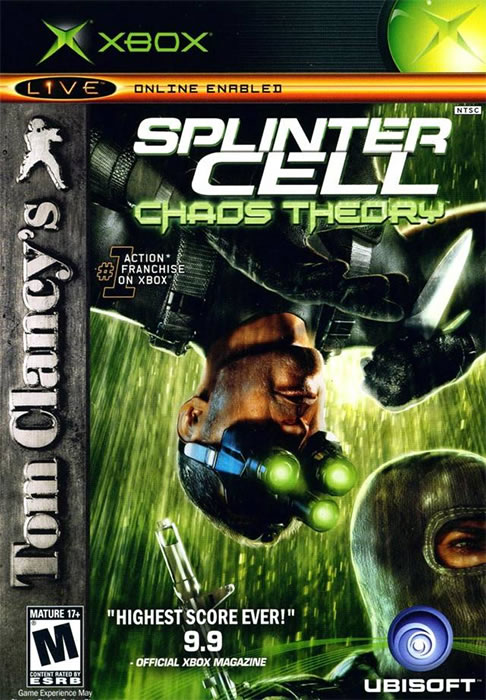
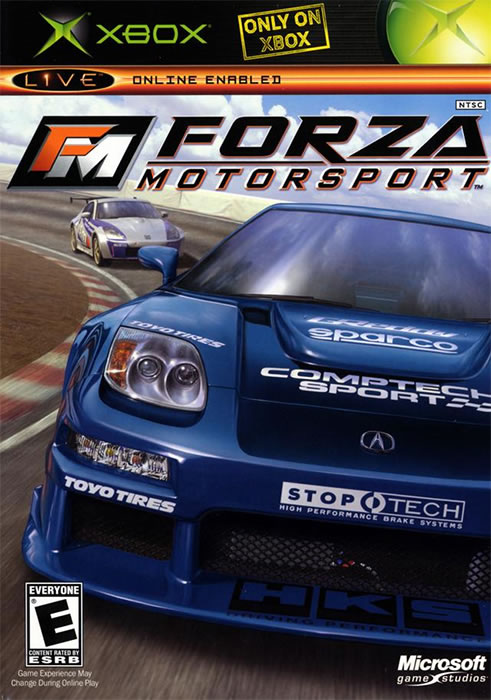
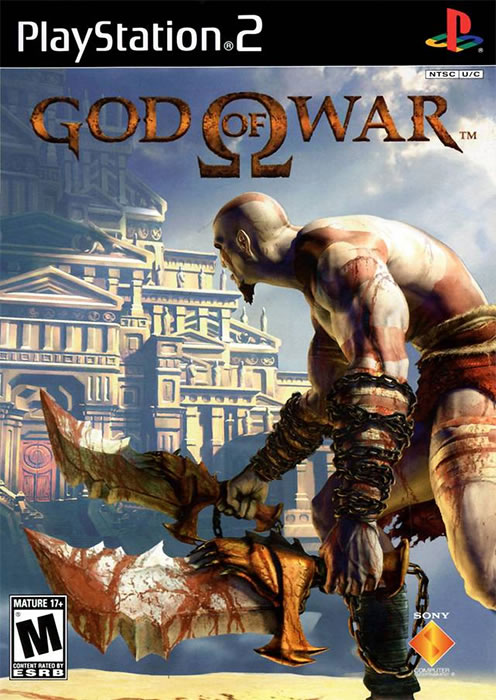
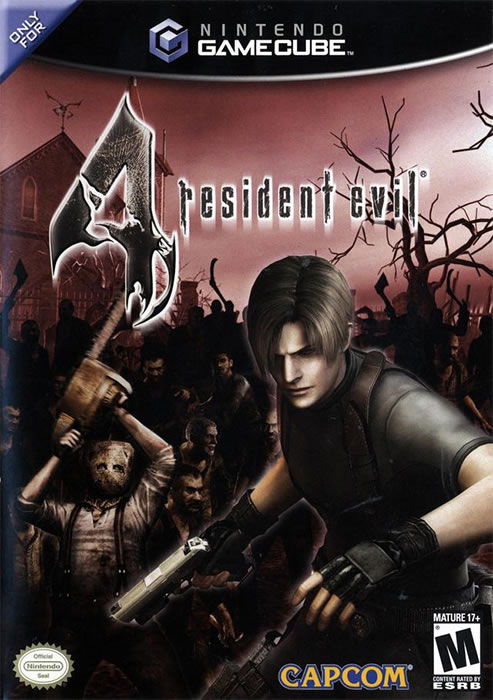

NCAA Football 06#10When Electronic Arts signed the exclusivity deal with the NFL in 2004, most football fans assumed that Madden would be the only game in town. This was, after all, an agreement intended to kneecap the competition, including both the NFL 2K and NFL Blitz series. But as it turns out, the call was coming from inside the house. Madden's biggest competition in 2005 wasn't from some competing company, but rather from Electronic Arts -- the makers of Madden. Bryan explains the situation this way: "When Madden snatched up the exclusive NFL license, some of you probably thought that the game would easily walk away with this season's football trophy. Well, after judging NCAA Football 06's performance, I'd say Johnny Ballgame better start taking his little bro seriously."
Patrick echoed this sentiment by noting that "features are nice, but gameplay rules. Last year's awesome additions came at the slight expense of the game's speed -- a deficiency that's been remedied in 06." He also mentioned that the new and much-hyped impact player feature is a bit too arcadey for him, "but I'm hapy the hit stick is no longer a Madden exclusive." Thanks to the redone visuals and the cool Race for the Heisman mode, NCAA Football 06 averaged a Madden-defeating 9.2 out of 10.

Gran Turismo 4#9I sure hope you enjoyed the all-too-brief reminder of awesome arcade racers in 2004, because we're right back to heaping praise on racing simulators in 2005. Gran Turismo 4 is one of two racing sims to break into the top ten, successfully fending off more over-the-top games like Ridge Racer, Burnout Legends, Burnout Revenge and Midnight Club 3: Dub Edition, all of which just barely missed the top 10. There was a feeling at the time that the more polished racing sims were deeper and thus more worthy of sky-high scores, a trend that largely came out of the sheer number of licensed cars, customization and real-world locations that made up these games. But while Gran Turismo 4 was the largest and deepest installment yet, it was also the lowest scoring game in the franchise. Were the EGM editors starting to slowly get sick of the formula?
Che wonders if the lack of competition has made Polyphony Digital complacent. He lavished praise on the incredible graphics, "but then again, this is Gran Turismo, and mind-blowing visuals are par for the course. Unlike the jump from GT2 to GT3, GT4's biggest contribution to the franchise is the game's fine-tuned vehicle handling. Unfortunately, this subtle upgrade can only be experienced using Logitech's awesome steering wheel peripheral, which features drastically improved wheel resistance and heavier, no slip pedals." John, on the other hand, didn't like bouncing off cars and wished he could turn the music off mid-race, but ultimately felt like the improved physics engine was a big deal. "Whereas games like Burnout 3 and Need for Speed Underground 2 feel fast, GT4 is the first game that I've played that really gives you a sense of a car's power." With an average score of 9.2 out of 10, the editors wondered if Gran Turismo 4 could be topped. Spoiler alert: It could, and we'll talk a lot more about that in just a few moments.

Grand Theft Auto: Liberty City Stories#8The PlayStation Portable may have launched with a lot of great games, but it took a return to Liberty City for Sony's PSP to crack into one of these best-of lists. Grand Theft Auto: Liberty City Stories was a revelation for the critics at EGM. It's one thing to port Twisted Metal or Tony Hawk's Underground, but GTA was the biggest franchise around and those games were massive, both in scope and content. It's important to remember that Grand Theft Auto III had only come out four years earlier, and the thought of playing a fully 3D GTA game on a handheld was unheard of at the time. Portable games in 2001 could barely handle Tony Hawk's Pro Skater, let alone a massively ambitious open world game. Even if Rockstar had to cut a few corners and the gameplay was limited by only having one analog stick, seeing Liberty City Stories run on the PSP was truly a sight to behold.
Greg Ford was happy to be home: "So, we're back, and I can say it's not just the living-city random A.I. that impresses. In virtually every sense -- including the angular graphics, full-fledged radio stations and controls -- Liberty City Stories is GTA. From the moment you jack your first car and hit the gas with satisfying results, you realize that the developers made many improvements and few compromises." John started his review by singling out his biggest complaint: "The combat control system is still far from perfect -- despite some obvious attempts to simplify it, it's hopelessly flawed." But don't call the game broken, because he was quick to highlight the brilliant design. "The game is enormous, and probably the best value of anything on the system because there's just so much gameplay here. Although flawed, Liberty City Stories is a remarkable achievement; it shames the efforts many other developers have put into their PSP games." Much like San Andreas a year earlier, Grand Theft Auto: Liberty City Stories exceeded expectations and earned an ambitious score of 9.2 out of 10.

Doom 3#7Was Doom 3 a good sequel? The answer to that question may depend on who and when you ask, as the sudden shift to horror and dubious flashlight mechanics initially left the fanbase polarized. While a lot of the fans have come around to Doom 3 over the years, the reviews at the time make it easy to see why there would be a divide. Just look at how Mark starts his review: "Purely in terms of gameplay, Doom 3's lack of ambition is astonishing. Id Software's latest first-person shooter doesn't just remind you of its infamous decade-old forefathers -- it's the same damn game. None of this is necessarily a bad thing, mind you, but in this age of Riddicks and Halos, it's a bit disappointing." He would go on to explain how the rest of the game perfectly built on the basic foundation to create "one of the most frightening and visceral experiences in gaming," but still concluded that he wanted to see more innovation out of the next sequel.
The horror element was a major theme running through all of the reviews at the time. Shawn warned you that "it can come anytime, anywhere -- crawling, charging and hovering -- half machine and all monster. In lesser shooters, you're safe until a cut-scene says otherwise and until you willingly walk through the next door. Here, hellknights batter it down before you can decide." The critics were impressed with the moody environments, the freaky lighting and the horrifying bosses. They compared it more to Resident Evil than a first-person shooter, which was one of the reasons why so many Doom fans were split on the third installment. With an average score of 9.3 out o 10, the EGM editors weren't split on their appreciation for Doom 3, even if some of them wished for more innovation.

Jade Empire#6Although computer owners had known for a long time that BioWare knew a thing or two about making great role-playing games, it took the release of Star Wars: Knights of the Old Republic for console gamers to catch up. Now that we were all on the same page, everybody was excited to see what the doctors would do next. That project turned out to be Jade Empire, an adventure based on Chinese mythology that saw the players control the last surviving Spirit Monk on a quest to save Master Li from the corrupt forces of emperor Sun Hai. It may have been a departure from the more familiar Star Wars universe, but that didn't stop the EGM editors from falling in love.
Jennifer proclaimed that "BioWare has done it again." Now, it's worth noting, she wasn't convinced that they could do it again, especially without an established franchise and change in the combat system, "but big risks reap big rewards, and [she's] now a believer." She loved the graphics, the story, the characters, the combat and so much more. Her biggest complaint was the relatively short length, which "might be a weakness or a refreshing liberation." Shoe wasn't nearly as impressed with Jade Empire, starting his review by noting a real sense of déjà vu. "I was hoping for so much more than a Chinese Knights of the Old Republic, but for 70% of Jade Empire, that's what I got. It's not all bad, but Jade really deserves to have its own distinct personality separate from anything we know from KOTOR." This may have been a valid criticism, but Shoe was overruled by Jennifer and Bryan, who helped the game average a very similar 9.3 out of 10.

Resident Evil 4 (PS2)#5It's hard to believe that Resident Evil 4 was ported to the PlayStation 2 only nine months after it first hit the GameCube, because it felt like an eternity of listening to everybody predict that Sony's five-year-old console was too ancient to do the game justice. As it turns out, the PS2 was more than capable of running Resident Evil 4. Sure, it looked a bit better on the GameCube, but it's not like PS2 owners were getting a hugely scaled-down port that paled in comparison. In fact, the PlayStation 2 version was so good that it landed as Electronic Gaming Monthly's fifth best reviewed game of 2005, ahead of games like Gran Turismo 4 and Jade Empire.
The EGM editors agreed that very little had been lost in the transition to PlayStation 2 and instead chose to focus on what made the game great in the first place. Mark was happy to see a proper Resident Evil game on the PS2 again after a four-year absence: "That's four years of settling for spin-offs -- the ho-hum shooting games like Dead Aim, the frustrating Outbreak online forays, the entire Silent Hill series -- but finally the wait is over. Resident Evil is back on the PS2, better than ever." Scooter argued that the new content found in the port isn't enough to get you to double-dip, but "if you haven't played RE4 yet, you simply must get this game. Resident Evil 4 is a great game that is no longer shackled to just one platform." Of course, this would only be the first of many ports for Resident Evil 4, which has now appeared on 12 different platforms by my count. GameCube fanboys may have complained, but Resident Evil 4 on the PlayStation 2 averaged a scary score of 9.5 out of 10.

Splinter Cell: Chaos Theory#4With the only Metal Gear installment being a weirdo strategy game on the PSP, Splinter Cell had free reign over 2005. UbiSoft took that time to release Chaos Theory, their largest and most ambitious sequel yet. But even with all the improvements, Shoe spent much of his review trying to justify giving Chaos Theory the same 10 out of 10 score as Pandora Tomorrow. In his week with the game, he noticed bugs, found the first half of the story mode lacked mind-blowing moments, laughed at the horrible voice acting, knew that most people found the versus game too complicated and was frustrated by the lack of closure in the co-op mode. He eventually came around because of all the moments: "It's simply brilliant. The modes, graphics, gameplay, sound, music, acting, dialogue and every other little piece in between all come together to create a tense, sweaty-palm experience you can't find anywhere else."
Mark also like the graphics, gameplay, sound and so on so forth, as well as the competitive online mode and co-op story, but had a slightly more complicated take of the main campaign: "As for the single player ... well, frankly I thought Mr. Fisher was getting "a little too old for this s***," as the scruffy middle-aged special agent himself might say. So little had changed between the original Cell and the not-even year-old Pandora Tomorrow that I wasn't really itching for more of the same. But Chaos Theory's admittedly minor tweaks taken together make what's basically the same game exciting again." To be fair to EGM, all three of the reviews talked about elements that they loved (such as the amazing level designs, eavesdropping on enemy conversations and genuine humor), but the tone of the reviews is surprisingly negative for a game that averaged a 9.5 out of 10. Make of that what you will.

Forza Motorsport#3With the Gran Turismo formula starting to wear a bit thin, Microsoft found the perfect opportunity to evolve the genre with a racing simulator of their own. Forza Motorsport took what worked in the competitor's racing game, streamlined the accessible interface and added so many addictive hooks that it became nearly impossible to put down. This is the first time the mighty Gran Turismo has been usurped by another racing simulator, and it wasn't a photo finish. While Sony's racer averaged a score of 9.2 out of 10, Forza zipped ahead with a 9.8. To quote Demian, this Xbox exclusive was "better than Gran Turismo 4." He argued that Microsoft's homage to the greatest driving sim around had already lapped the competition, "thanks in no small part to Forza's online multiplayer. Even without the online stuff, though, Forza is every bit as good and accurate a sim as GT."
John was even more impressed with the Xbox racer, raving that "Forza's handling is impeccable. Many car sims have done an adequate job of providing an impression of the forces exerted on a car as it hurtles around a track, but in Forza it's as though you can feel the exact point where your tires lose traction. As a demo of how important clever physics models are, there are few experiences more tactile on Xbox." With a near-perfect average of 9.8 out of 10, Forza Motorsport had the best racing game debut in Electronic Gaming Monthly's history and is the third best-reviewed racer overall. It's also number three on our list of EGM's best reviewed games of 2005. All the more impressive when you see the two games at the top of the list.

God of War#2Who knew that the guy who gave us Twisted Metal would go on to resurrect the beat 'em up genre with one of Sony's most successful (and enduring) franchises? God of War may not have been the biggest and longest action game of the year, but what it did exceptionally well was feel epic. It was the kind of button-masher where every moment came across as important, thanks in large part to the cinematic camera angles and massive boss fights that had to be seen to be believed. But what Sony had was more than just a great brawler, because the reason the game works so well is because of its main star -- Kratos. This was the best new character of the year and somebody who wouldn't need a bunch of games to cement his place as one of the greatest action heroes of all time.
Crispin sums it up perfectly: "I don't care if you're Solid Snake sheathed in Master Chief's armor supercharged with Ninja Gaiden's kung fu -- you do not mess with Kratos. He sacrifices fellow Spartans to solve grisly puzzles. He hops into bed with togaless hotties. He's an unstoppable blade-whirling dynamo who topples creatures so towering, some pre-Simpsons Homer called them Titans. And he does it all without dropping one painful one-liner. You listening, Prince of Persia?" Dana loved the gorgeous visuals and incredible action, and was quick to note that "it's not that long, but the cycle of puzzles and action was starting to get a bit old by the end, so the length is just about perfect." With an average score of 9.8 out of 10, God of War was the best new IP since EGM reviewed Halo back in 2002. That's pretty epic.

Resident Evil 4#1For the first time in seven years, Electronic Gaming Monthly went a full twelve months without giving a single game an average of 10 out of 10. It's true; ever since EGM gave their first perfect average, they have given at least one game that score every year. Often, it's two or three games, but 2005 was different. Maybe worse, depending on how you look at it. But it's hard to call 2005 a lesser year when it gave us God of War, Jade Empire, Forza Motorsport and our number one game -- Resident Evil 4. Yes, again. We've already talked about the PlayStation 2 port, so now it's time to talk about the version that started it all.
For fans of the series, Resident Evil 4 was a breath of fresh air. It's important to remember that nearly a full decade of survival horror cliches had weighed down the franchise to the point of almost feeling like a parody by 2005. You saw this in Mark's review: "Forget what you know, or think you know, about Resident Evil. RE4 not only brings the series out of its creative rut, it also packs the most refined graphics and gameplay in survival horror since ... well, ever. I don't care how sky-high your expectations are, RE4 will blow them away again and again." Milkman loved that this was a sea change for the series, calling it "an amazing example of a game making good on its potential" and saying that "Resident Evil 4 eradicates the problems that pestered the series since day one. Gone are the crappy inventory system of old, the stupid save ribbons, and the feeble-minded undead that have defined Resident Evil. I can't emphasize enough how this is a brand-new game." With both critics giving the game perfect 10s, what could possibly tarnish the score? Apparently, it was the goofy dialog and lack of strafing that did the game in. Oh well, I doubt anybody is going to be too disappointed with Resident Evil 4 earning a 9.8 out of 10, making it not only the top-rated game in the series, but also Electronic Gaming Monthly's best reviewed game of 2005.
HOME |
CONTACT |
NOW HIRING |
WHAT IS DEFUNCT GAMES? |
NINTENDO SWITCH ONLINE |
RETRO-BIT PUBLISHING
Retro-Bit |
Switch Planet |
The Halcyon Show |
Same Name, Different Game |
Dragnix |
Press the Buttons
Game Zone Online | Hardcore Gamer | The Dreamcast Junkyard | Video Game Blogger
Dr Strife | Games For Lunch | Mondo Cool Cast | Boxed Pixels | Sega CD Universe | Gaming Trend
Game Zone Online | Hardcore Gamer | The Dreamcast Junkyard | Video Game Blogger
Dr Strife | Games For Lunch | Mondo Cool Cast | Boxed Pixels | Sega CD Universe | Gaming Trend
Copyright © 2001-2024 Defunct Games
All rights reserved. All trademarks are properties of their respective owners.
All rights reserved. All trademarks are properties of their respective owners.













